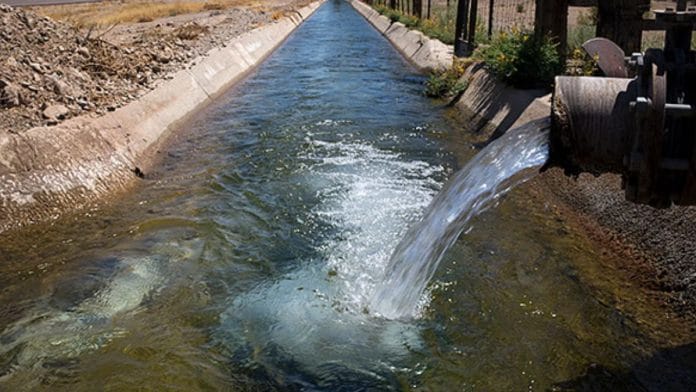As India moves toward achieving its ambitious clean energy and climate goals, the water situation remains dire. The country is expected to become extremely water stressed by 2050, which could cause GDP losses of seven to 12 per cent. Water shortages threaten to reduce cropping intensity by up to 68 per cent, jeopardising millions of farmers. Simultaneously, India’s growing energy demand can heighten water stress and impact national energy and climate goals.
Water and energy security objectives must be harmonised to achieve climate goals. Indian policymakers should adopt three key strategies to align energy and water security: integrate water and energy planning frameworks, optimise water use in energy systems, and reduce the energy footprints of water systems.
Integrating planning frameworks
Policy planning and implementation for water and energy is spread across multiple ministries and departments in India. Aligning the diverse goals of these ministries is crucial, as conflicting objectives can undermine broader climate policy targets. For instance, the agriculture sector accounts for nearly 80 per cent of India’s water demand and heavily relies on groundwater. Groundwater extraction is overextended as farmers have no incentive to optimise water use due to misplaced electricity subsidy structures. As a result, groundwater in Northwest India is being depleted at roughly double the rate than other arid-semi-arid regions of the world.
The water and energy sectors need to be de-siloed due to their deep interlinkages. According to a 2023 World Bank study, targeted policies and subsidy reforms of governments, supported by integrated action across sectors, can curb mismanagement. Policymakers must collaborate to create integrated platforms, co-develop policies to minimise conflicts between water and energy policy goals and complementary incentive mechanisms.
A notable example is the United States Water Policy Committee, which codified leadership and management tools that helped modernise federal water policy across the Departments of the Interior, Agriculture, Commerce, Energy, and the Environmental Protection Agency. Since 2018, this committee has been supporting interagency coordination, research, and action planning and has a dedicated budget.
Also read:
Optimising water use
Water is crucial for energy security and plays a key role in clean climate solutions, including solar power, green hydrogen, green buildings, ethanol, batteries, and electric transportation. It is important to design policies to promote water-use efficiency in clean energy systems.
Solar panels use freshwater throughout its lifecycle, with 85 per cent of this water being consumed during production. As India ramps up solar panel manufacturing, it should implement water-use efficiency standards and norms. For instance, China has established strict norms for water consumption and recycling in new solar manufacturing capacities.
Improving water efficiency in clean energy and reducing freshwater dependence are both important. Alternative sources such as water reuse, recycling, rainwater harvesting, and desalination should be explored for sustainable water resources management in renewable energy, supported by incentive structures.
India’s Power Tariff Policy 2016 mandated thermal power plants to use treated wastewater if a sewage treatment plant exists within 50 kilometres, with costs allowed as a passthrough. However, the lack of incentive mechanisms and ambiguity around implementation have led to limited adoption. A more structured policy framework that encourages water-use efficiency and alternative water sources should be designed for energy systems.
Reducing energy footprints
The energy consumption of water systems is significant, and inefficiencies here can significantly overstress energy resources. India’s irrigation efficiency is at 38 per cent, compared to 50-60 per cent in developed countries. Water and wastewater transport and treatment are energy-intensive, with energy costs estimated to be 40-60 per cent of water utilities’ operating expenses. These costs can be optimised through energy efficiency processes and renewable energy integration. Water systems must make concerted efforts to streamline efficiencies.
Sewage treatment plants can also deploy energy recovery mechanisms to generate power from sludge. For instance, the Okhla wastewater treatment plant in India aims to generate five megawatts of green energy from sludge, optimising its energy bill.
Promoting renewable energy in water and wastewater treatment can significantly reduce greenhouse gas emissions. For example, the Blue Plains wastewater treatment plant in Washington DC, the largest advanced sewage treatment plant (STP) in the world, has implemented energy-saving measures and renewable energy generation. It utilises a thermal hydrolysis process that incinerates sludge to produce a net 10 megawatts of electricity, alongside a solar panel installation programme.
Such interventions should be encouraged for widespread adoption. This is particularly important as India builds its wastewater treatment systems, which comprise 1,631 sewage treatment plants – 1,093 existing, 102 non-operational, and the rest underway.
Addressing climate change requires tackling water and energy issues, as they are interdependent. India’s energy-climate policies must integrate water impacts, and vice versa. Emphasising water security, efficiency, and sustainable management is crucial for enhancing resilience and reducing carbon emissions. Considering that water as a resource is critical for climate resiliency, the government must demonstrate strong political action to showcase water as an important agenda in climate dialogues.
Bhawna Prakash is a senior fellow, water and sanitation with the Chair on India and Emerging Asia Economics at the Center for Strategic and International Studies (CSIS). Akanksha Golchha is a fellow, energy with the Chair on India and Emerging Asia Economics at CSIS. Views are personal.
(Edited by Zoya Bhatti)






